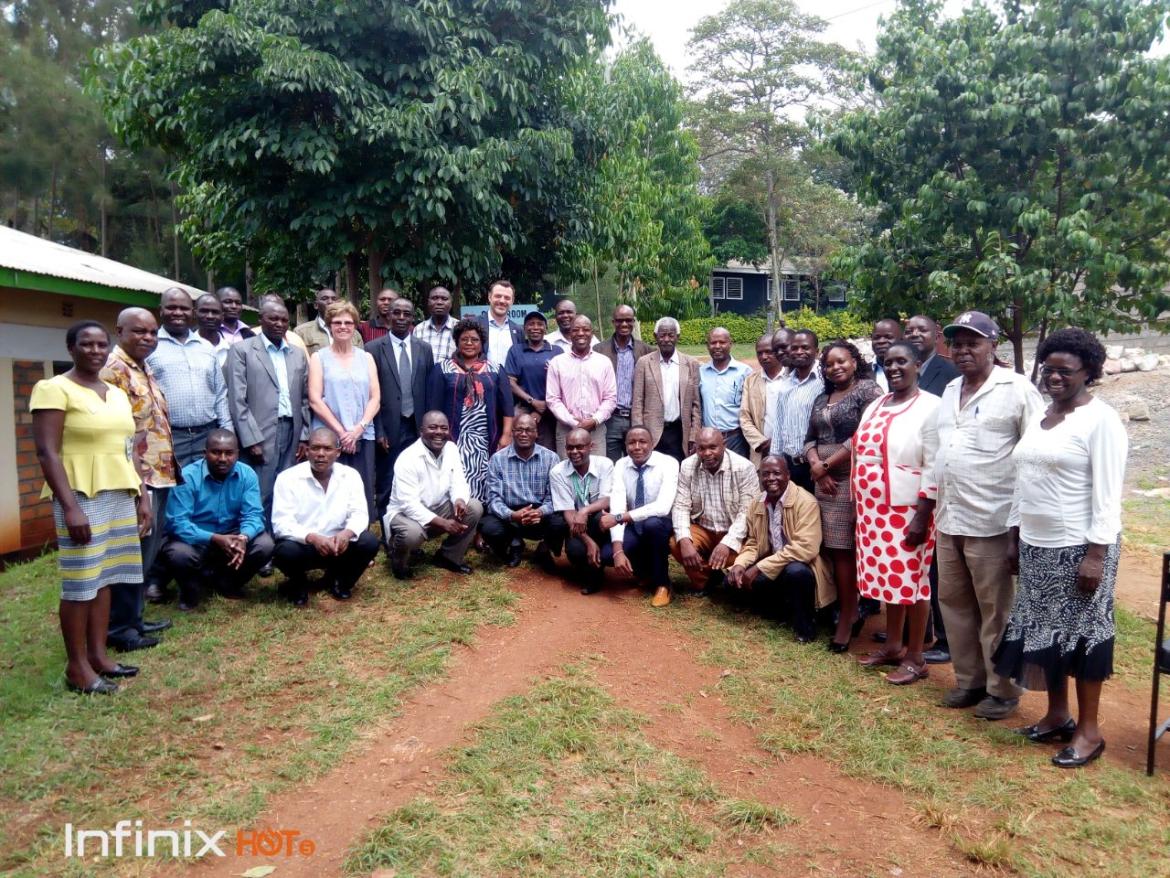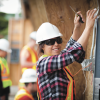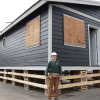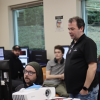
May 8, 2019 - 1:30am
As part of Vancouver Island University's active involvement in international cooperation work, VIU has partnered with Kisii National Polytechnic in western Kenya to help bolster the school’s building technology programs. The 3.5-year project is part of the Kenya Education for Employment Program (KEFEP), an initiative of Colleges and Institutes Canada (CICan) funded by Global Affairs Canada designed to strengthen and support technology and vocational education in Kenya. A Kenyan delegation involved with the project recently visited VIU.
Deanna Littlejohn is an instructor in VIU's electrical program and has been involved with KEFEP since it started. This project is a fantastic example of how VIU employees are actively involved in global citizenship initiatives. Deanna answered our Q&A about her involvement.
To learn more and get involved in VIU's international cooperation projects, please contact Darrell Harvey, Coordinator, International Projects and Internationalization at Darrell.Harvey@viu.ca.
1) Tell us a little bit about your role in the Kenya Education for Employment Program.
I have been involved with the KEFEP Program since its inception. We initially visited Kenya and met with their administration and did an assessment of their facilities and equipment. I returned on a second mission to identify essential elements for a new training program.
2) Why did you decide to get involved in one of VIU’s international cooperation projects?
I have always had an interest in working with developing countries. It is extremely rewarding and appreciated by the colleagues we work with. Previously, I travelled to the Bahamas to assess the training program at the Bahamas Technical Vocational Training College and I also travelled to Mongolia and worked in the second largest copper mine in the Gobi Dessert. For that project we acted as consultants to assess Mongolian Electrical qualifications.
3) When/how many times have you been to Kenya?
I have been twice.
4) What has been your favourite aspect of this project?
By far, it is getting to know the people. The Kenyans we work with are very well educated, extremely conscientious and so easy to work with. It has been exciting to spend enough time with them to begin learning some of the cultural differences. Last week when they were here we had a backyard fire and taught them how to make s’mores and cook smokies. They had never tried either and had fun exploring the ketchup, mustard and relish flavours.
5) What’s it been like working with their instructors? Similarities/Differences?
They are an easy bunch to work with. They are engaged and happy to be learning and sharing. One big difference is the lack of funding that they have for equipment and classroom resources, such as computers, workshop equipment and projectors in the classrooms. We are fortunate to have lots of great tools and materials to assist in our teaching at VIU.
6) What have some of the benefits to you in your role at VIU been? To your faculty?
This project has had a great (steep) learning curve because the technical area is outside my area of expertise (Electrical). The project revolves around Building Technology (Carpentry, Masonry and Plumbing). We’ve had to develop the National Standards and Curriculum. I have learned a lot around the development of a program.
7) Have you adopted anything you have learned there into your classroom here?
I always find some interesting pieces that get woven into my teaching and that my teaching style evolves.
8) What are some of the challenges/highlights?
At first, it was very difficult to understand our Kenyan partners when they spoke. They were extremely soft spoken and even though it was English, the accent made it a challenge. I have noticed that I have adapted and it has become much easier lately; they are also more confident and speak a bit louder for us.
9) What does success of the project look like to you?
It’s exciting these days as we have carved out a clear path and are pretty sure that our Kenyan colleagues will be receiving a bulk order of tools and equipment to outfit their shops. I already feel like we have hit a milestone in that the instructors and administration are keen to change the style of teaching from a theoretical delivery of information to a hands-on, project-based delivery.
10) What are some of your impressions of the Kenyan people and culture?
I, and I am confident others on the VIU team agree, feel fortunate to be able to work with such caring and thoughtful people.
11) Are you going back again?
Hopefully I will get to go back to assist in their training on the new equipment.
12) Closing thoughts/ anything else you’d like to share?
We visited the Masai Mara National Park while we were there last time. I’d go back in a heartbeat! It is an absolutely fantastic game reserve and makes you feel like a kid in a candy store.
Tags: Teaching and Learning






